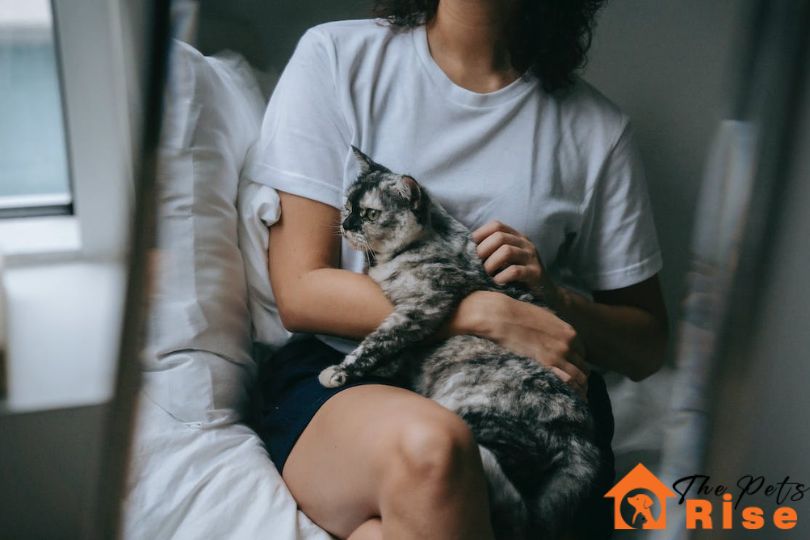Things to know before getting a cat is one of the most helpful topics for new cat owners or will-be cat owners thinking about getting a cat for a pet. We all know how cute and mysterious cats can be. They aren’t overly vocal, clean by nature, and tend to roam around the house freely. However, not all cats are the same. Some cat breeds for first time cat owners are just matches made in Haven.
However, some cat breeds can be too tricky for first time cat owners. If you are thinking of getting a cat this year then don’t rush. There are several good things to know about cats. We created this guide for people who were looking for things to know before getting a cat. Just sit back and continue reading our guide before getting a cat for a pet.
What Makes a Cat the Perfect Pet?
Cats are the perfect pet for many people due to their unique personalities, intelligence, and affectionate nature. They provide companionship and entertainment while requiring minimal effort from their owners which is why a huge number of people want a cat for a pet. Cats are also relatively low-maintenance when compared to other animals, making them ideal for busy households or those with limited space.
Additionally, cats have been known to provide emotional support and comfort during difficult times. With all these qualities combined, it’s no wonder why cats make such great pets!
Things To Know Before Getting Cat
Adopting or buying a cat for a pet is a big decision and you shouldn’t take it too lightly. Before making the commitment to bring a feline companion into your home, it’s important to consider all the factors involved in owning a cat. You should learn about how to raise cats from friends or family members who already own cats. However, some of the factors you should keep in mind include:
– The Financial Costs Of Cat Food
One of the most important parts of how to raise a cat is knowing the monthly cat food cost. Cats are usually fairly inexpensive pets to own, but the cost of their food can add up over time. The cost of food for cats can vary depending on the type of food, the quality of the food, and the size of the portions.
Dry food is usually the most budget-friendly option, costing anywhere from a few dollars per pound up to around $20 per pound for premium brands. Wet food tends to be more expensive, with prices ranging from around $1 per can up to around $3 per can for premium brands. Many cats also enjoy treats, which can add a few dollars to the monthly food budget. It’s important to factor in the cost of food when thinking of getting a cat, as the cost of food can add up quickly.
– Cost of Vet Visits
Vet visits can be expensive and can take a toll on your finances if you are not prepared. Some of the costs associated with vet visits include consultation fees, diagnostic tests, treatment, and medications. When it comes to knowing everything to know about cats, most of us will forget about vet visits. Depending on the severity of the condition, additional costs may include hospitalization, surgery, and special diets. Vaccinations, flea, and tick prevention, and heartworm prevention also cost money, and these should be factored into your budget.
If you are planning to get a cat for a pet then be ready for cat emergencies even on holidays. If you have an emergency situation, the costs can be significantly higher. Even if you have pet insurance, you will likely have to pay for the initial visit, and you may still have to pay for a portion of the treatment. It is important to know the costs of vet visits before you take your pet in for treatment and to make sure you have the funds available to cover any unexpected costs.
– Cat Litter Cost
One of the most important things to know before getting a cat is that don’t overlook the quality of cat litter. Cat litter is an essential item for any pet parent, but it can be a costly expense. The cost of cat litter varies depending on the type of litter, the size of the box, and the frequency of use.
Clumping clay litter is the most common type of litter, and it generally runs between $10 and $20 per bag. Non-clumping clay litter is usually a bit cheaper. Natural litters, such as wood pellets and corn cob, are more expensive, running up to $30 per bag.
The cost of litter also depends on the size of the box. Larger boxes require more litter, making them more expensive. Lastly, the frequency of use affects the cost of litter. Regularly scooping the box and changing the litter every few weeks can help keep costs lower. All in all, the cost of cat litter can range from a few dollars a month to over $50 per month.
– Life Style Consideration
So when you will think about everything to know about cats then not everything can be considered too quickly. When it comes to things to know before getting a cat most of us will forget that cats also need companionship. Though they have a tendency to be more independent they want to be around their owners, other family members, and pets.
However, it is important to consider you can spend with your cat first. Are you the one who travels a lot or do you have a longer job schedule? Owning a cat will change things. Getting a cat for a pet means being prepared for litter boxes, hairs on your furniture, and random scratches on furniture.
Preparing Your Home for Your New Feline Friend
Among the most important things to know before getting a cat, kitten-proofing your house is a crucial thing to do. but it’s important to make sure that your home is ready for your new companion. Preparing your home for a new cat involves creating a safe and comfortable environment where they can explore, play and rest. It also involves taking the necessary steps to protect them from any potential hazards in the home.
If you want to know how to raise cats then don’t forget the importance of a safe space for young cats. You’ll be setting them up for success and helping them to adjust quickly to their new surroundings. The following checklist of tasks is designed to help you prepare your house and make sure it’s safe for your new cat.
Cat Homecoing Checklist
– Ensure that your home is safe for your new cat by removing any items that are potentially dangerous.
– Remove any cords, wires, strings, or other items that could potentially be ingested by the cat.
– Take care of plants with thorns and poisonous leaves and stems.
– Remove anything from the floor litter tray that could pose a danger to the cat such as broken glass, rocks, or metal pieces.
– Ensure there are no other animals/pets in your home as they may be aggressive towards a new animal in their territory and this can result in injury on both sides.
– Remember to remove any outdoor animals before bringing home a new feline friend.
– Secure all openings in your home, such as windows and vents, to ensure that your cat is unable to escape. If you have an outdoor space, make sure it is secure and fenced off.
– Provide your new cat with food and water dishes. Consider purchasing dishes that are designed to reduce mess and spillage.
– Create a comfortable resting area for your cat. Consider purchasing a cat tree, bed, or scratching post.
– Make sure your home is properly ventilated. Cats are sensitive to temperature and humidity changes.
– Provide your cat with some toys and activities to keep them entertained. This could include scratching posts, interactive toys, and puzzle toys.
– Provide your cat with a litter box. Make sure that the box is in a quiet and private area of your home.
– Set up a grooming station for your cat. Consider purchasing a brush, comb, and nail clippers for your cat.
– Ensure that your home is clean and free of any pests or parasites. Consider purchasing flea or tick prevention products to keep your cat safe.
– Finally, consider purchasing pet insurance to give you peace of mind in case of any unexpected health issues.
Take the time to prepare your home for your new feline friend. You’ll be ensuring that they have a safe and comfortable environment to explore and play in.
Understanding and Caring for Your Cat’s Needs
You might be thinking of getting a cat because you know they are amazing companions. They bring joy and love to their owners. But, like any other pet, cats need proper care and attention to stay healthy and happy. Understanding your cat’s needs is essential for providing them with the best possible care.
From understanding their dietary needs to providing enough exercise, there are several things to know about cats well-being. One of the amazing things to know about cats is that they can show the same level of love and affectation towards their owner as dogs but their way may not be too known.
Knowing how to respond when they are feeling stressed or anxious is also important for a healthy and comfortable cat. With a little bit of knowledge and some extra effort, you can make sure that your cat has everything they need to lead a long, happy life!
Conclusion: Are You Ready To Welcome Your New Feline Friend Into Your Home?
In this post, we compiled the things to know before getting a cat. You may like them because they’re being cute and for good companionship. However, there are several things to keep in mind before getting one. Remember, getting a cat for a pet can be a great experience. But adopting a cat can be a great responsibility. The cost of owning a cat is crucial to know so you know if you can afford to have a cat in the most healthy way possible. Be sure to understand how to raise a cat and then make an informed decision to enjoy great companionship with your cat.







